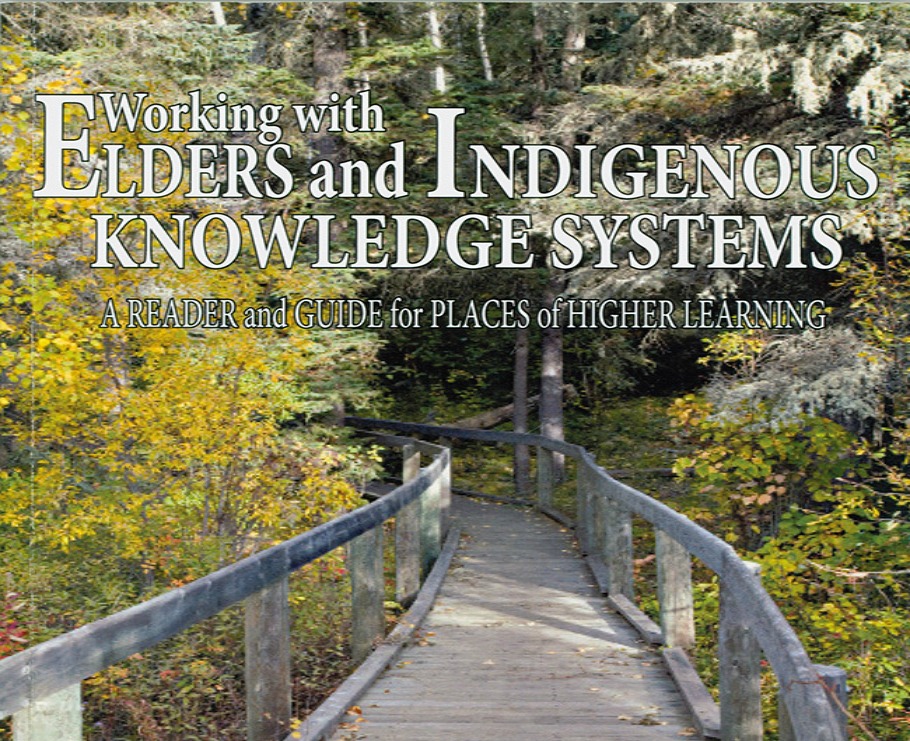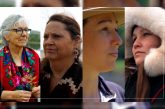
Coverphoto for the book Working with Elders and Indigenous Knowledge Systems by Herman J. Michell, Ph.D | Image source: anishinabeknews.ca
Working with Elders and Indigenous Knowledge Systems is a small book aimed at students, and faculty, who are both Indigenous and non-Indigenous, that seeks to enable better cross-culture dialogues. While the volume addresses who is an Elder, the role and importance of Elders as well as the basics of Indigenous knowledges, Michell is keenly aware and stresses that every Elder and system of knowledge is different from community to community and nation to nation. This point is stressed in each chapter, with the aim to remind readers that while commonalities exist across Indigenous Nations, one needs to know and respect the local and individual – we are not all the same. This emphasis may seem odd to readers, but it in my experience it is necessary to remind people of this basic fact.

Nonetheless, the book is not about our differences. The volume’s contribution rests on its ability to offer a general overview of how to approach and work with Elders, and the importance of western institutions incorporating Indigenous Elders. It is not about assimilating Elders into a western mindset, it is about expanding the lessons and knowledges present in these institutions while showing respect for the absolute inherent value in Elders’ knowledge. Elders, Michell points out, specialize in many different things dependent on their life, knowledge, experiences, and abilities – not all are spiritualists, or councillors, nor can every Elder address a large class. Michell states that Elders are knowledge keepers or holders; they are not merely elderly nor do they [use] knowledge as a marketable capitalist good. He also reminds us that Elders are precious and learned and that we must take into account their diverse abilities when asking them to participate in programs and institutions. Importantly, Michell maintains that Elders are a requirement in places of higher learning and deserve respect and appropriate compensation. Since many Indigenous students, due to the effects of colonization, are seeking to learn about their people, cultures, histories, and themselves at universities and colleges, Elders are needed as much as academics. Elders can bring knowledge and enlightenment to places of higher learning by diversifying knowledge and enriching student and academic experiences across campus.
Another aspect in Michell’s book, is the conceptualization of Indigenous Knowledges. This aspect is not as developed as his discussion of Elders. Yet, this ‘lack’ of description can be seen as purposeful. By merely defining knowledge as being rooted in place, land, person, and community, Michell leaves the definition of ‘what is knowledge’ open to interpretation and representation by the Elder sharing it. He also notes that some knowledges are not for everyone. For instance, some knowledge is gender, seasonal, or culturally specific. One needs to understand that not everything is for everyone’s consumption. Yet, this knowledge Michell notes is as detailed, in depth, and ‘scientific’ as anything the west has to offer.
Overall, Working with Elders and Indigenous Knowledge Systems, is a book best read by students and faculty at the very introductory stages of their learning process regardless of national origins. It may also serve as a brief refresher or reminder for those who have spent many years working with Elders and Knowledges. It will serve as a basis for understanding and working with Elders and Indigenous knowledge but should not be the end point of the lesson. Speaking to those with experience as well as reading further works concerning Indigenous knowledge and working with communities and Elders remains a necessity. Hence, I would recommend this book as a quick read and a beginning point, not an end or a how-to manual.
Michell, Herman J. Working with Elders and Indigenous Knowledge Systems: A Reader and Guide for Places of Higher Learning. Vernon, B.C.: Jcharlton Publishing Ltd., 2013.
This review was written by Karl Hele from Anishinabek News and has been republished with permission.









